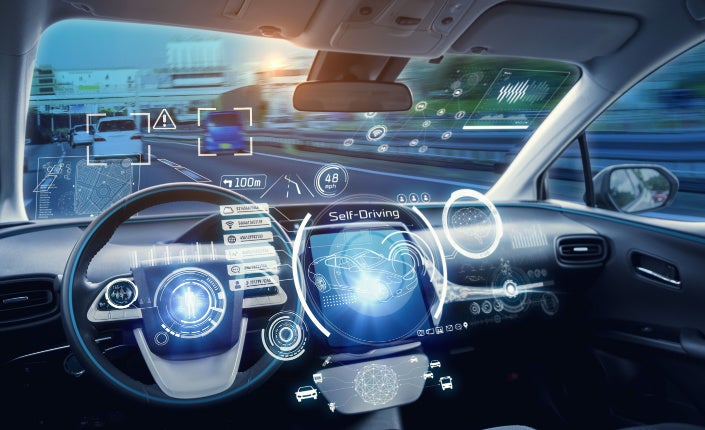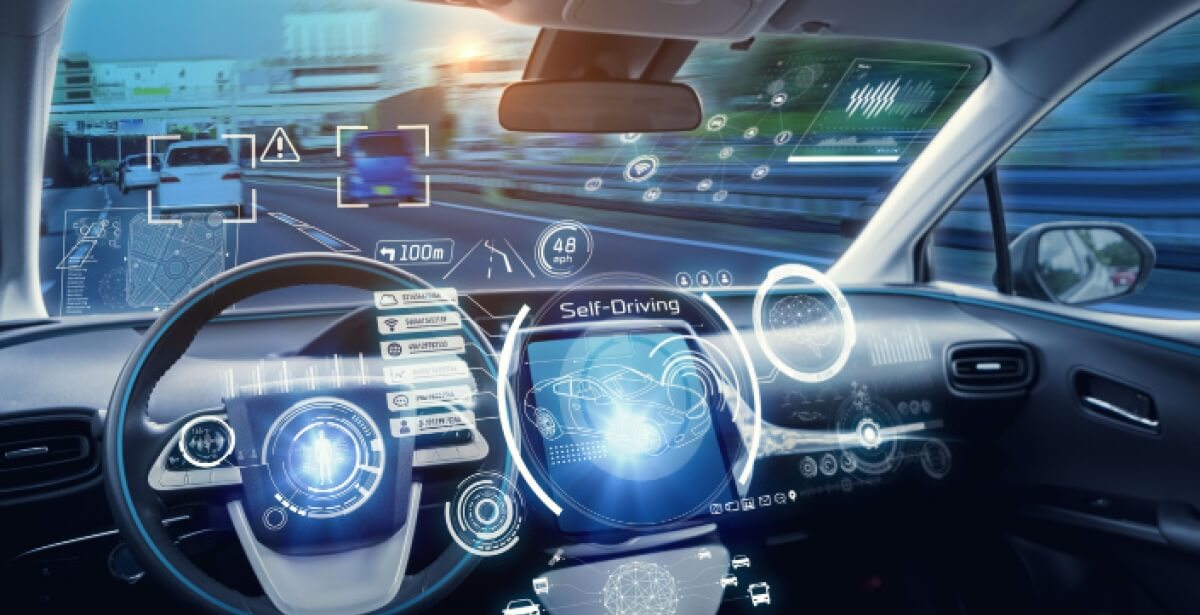
Upskilling Mechanical Engineers for the World of Electric Vehicles
The world is experiencing a transformative shift in advanced mobility which also includes sustainable energy solutions. As the demand for electric vehicles, renewable energy systems, and smart technologies continues to grow, so does the need for engineers who can design, develop, and maintain these cutting-edge innovations. This is why Kettering University Online (KUO) created the groundbreaking program: MS in Electronic and Computer Engineering – Advanced Mobility. This program is the first of its kind, equipping graduates with technical expertise to play an integral role in developing and improving electric and autonomous vehicles, mobile robotics, and other dynamic systems.
Let us explore opportunities for mechanical engineers in advanced mobility, electric and autonomous vehicles shift with a focus on how KUO can make a difference.
Electric and Autonomous Vehicles
Employing the use of electricity to replace fossil fuels and non-renewable sources of energy is not only paramount in the automobile industry but has moved into other industries as well. This is and will continue to be revolutionary for many industries and will require not only those skilled in electric vehicle development and maintenance but also those interested in supporting the infrastructure required to support these vehicles on the road. California, for example, is requiring that by 2035 35% of all new vehicles have zero emissions. This will likely mean battery-powered electric vehicles, plug-in hybrid cars, and fuel cell alternatives (ww2.ab.ca.gov). Mandates like this will open the world to a whole new set of careers, and having the skills to meet these needs is vital.
Mechanical Engineers: Key Players in Electrification
Mechanical engineers are well-positioned to contribute to the move to electric and alternative fuels. This has to do with the Mechanical Engineer’s education and experience that develops a strong foundation in engineering principles and problem-solving skills. Their expertise in mechanical systems, thermodynamics, and materials science makes them valuable assets in designing and optimizing electric vehicles, renewable energy systems, and related technologies. However, upskilling is crucial for mechanical engineers to adapt to the move into alternative fuel sources.
Becoming Familiar with Electrical and Electronic Systems
To excel in electrification, mechanical engineers need to develop a solid understanding of electrical and electronic systems. This includes knowledge of power electronics, electric circuits, control systems, and energy storage technologies. By acquiring these skills, mechanical engineers can effectively integrate electrical components into their designs, troubleshoot electrical issues, and contribute to the overall electrification process.
Mastering Electric Powertrains
Electric vehicles (EVs) are at the forefront of the revolution. Mechanical engineers who specialize in electric powertrains play a pivotal role in optimizing vehicle performance, range, and energy efficiency. Understanding electric motors, battery systems, charging infrastructure, and regenerative braking systems are crucial areas of expertise for mechanical engineers venturing into the EV industry.
Embracing Advanced Simulation and Modeling Tools
With the increasing complexity of electric systems and other alternatives, mechanical engineers must become proficient in utilizing advanced simulation and modeling tools. These tools allow engineers to analyze the behavior of electrical components, optimize system performance, and predict energy consumption. Through simulations, engineers can identify design flaws and iterate more efficiently, ultimately accelerating the development process.
Collaborating with Cross-Disciplinary Team
Moving away from the internal combustion engineer will require advanced collaboration among engineers from various disciplines. Mechanical engineers must be capable of working in multidisciplinary teams comprising electrical engineers, computer engineers, and experts in other specialized areas. Effective communication, adaptability, and a willingness to learn from colleagues in different fields are essential for success in this collaborative environment.
Upskilling Opportunities for Mechanical Engineers
To facilitate the transition of mechanical engineers into these new industries, numerous upskilling opportunities exist. These include:
- (skip to) KUO Master’s Program
- (skip to) Professional Development Courses
- (skip to) Certification Programs
- (skip to) Hands-on Workshops and Projects
- (skip to) Continuous Learning and Keeping Abreast of Industry Trends
Kettering University Online Master’s Program
Enrolling in the MS in Electronic and Computer Engineering – Advanced Mobility program at Kettering University Online is an excellent way to propel your new career. Courses in this program include:
- Mobile Robotics
- Artificial Intelligence for Autonomous Driving
- Modeling of Dynamic Systems
- Digital Signal Processing Techniques for Automotive Engineering
- Automotive Control Systems
- Machine Drives for Electric Vehicles
- Power Electronics for Vehicle Electrification
Graduates of this program are experts in:
- Integrating electrical and computer systems for autonomous vehicles and other advanced mobility applications
- Developing advanced mobility applications for electric, hybrid and autonomous vehicles, transportation systems, artificial intelligence, and robotics as it applies to mobility
- Designing dynamic systems that work to enhance and support autonomous functionality
- Understanding how robotics is enhanced with artificial intelligence
Dr. Anca Sala, who currently teaches three courses in the MS Electrical and Computer Engineering – Advanced Mobility Program: Mobile Robotics, Digital Signal Processing Techniques, and Machine Drives for Electric Vehicles, had this to say:
- “The program provides a comprehensive perspective, as well as a variety of technical skills, in the area of advanced mobility, including electric and autonomous vehicles. It features a great combination of courses that are designed to stress the application of the advanced knowledge they impart to problems encountered in the field. As the automotive industry is transitioning to electric cars and self-driving cars, that are at the same time very sophisticated computers, the industry needs engineers with the right skills, and that is what the program offers to its graduates.”
Professional Development Courses
Kettering Global X, the corporate training arm of Kettering Global, as well as other online platforms and industry organizations, offer specialized courses designed to cater to the specific needs of mechanical engineers venturing into electrification. Topics likely include electric vehicle technology, power electronics, and energy storage systems. Taken together, they can enable engineers to acquire the knowledge and skills required for this field.
Certification Programs
Certifications in electrification-related areas can significantly enhance a mechanical engineer’s employability and credibility. Certifications such as Certified Electric Vehicle Technician (CEVT) and Certified Energy Manager (CEM) demonstrate proficiency and expertise, opening doors to a wider range of electrification career opportunities.
Hands-on Workshops and Projects
Participating in hands-on workshops and real-world projects related to alternative fuel sources allows mechanical engineers to gain practical experience and apply their skills in a practical setting. These opportunities provide exposure to cutting-edge technologies, collaboration with industry professionals, and valuable networking connections.
Continuous Learning and Keeping Abreast of Industry Trends
Given the rapid pace of advancements in the automotive industry, continuous learning is essential for not only mechanical engineers but all engineers to stay relevant and compete in business. Subscribing to industry publications, attending conferences, and actively engaging in online forums and communities enable engineers to stay updated on the latest trends, emerging technologies, and best practices in the electrification field.
By expanding their knowledge in electrical and electronic systems, mastering electric powertrains, utilizing advanced simulation tools, and collaborating effectively in cross-disciplinary teams, mechanical engineers can make a significant impact in the automotive and alternative fuel revolution. Through continuous learning and active participation in upskilling opportunities, mechanical engineers can position themselves at the forefront of this exciting and sustainable industry, shaping a greener and more electrified future.
Get Started with Kettering Online
These dynamic changes and move from fossil fuels present a world of opportunities for mechanical engineers, as does a degree from Kettering University Online! If you are someone who is willing to adapt, upskill, and embrace the challenges of this transformative era, we are the right school for you!

